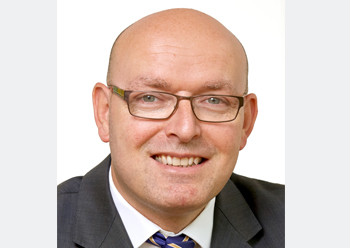Hot Tubbing: getting more from witnesses
STUART JORDAN* takes a closer look at ‘Hot Tubbing’, the practice of getting opposing expert witnesses to give their live evidence together, and its impact on the dispute resolution process.
01 September 2018
A large proportion of construction disputes involve the use of expert evidence. As an industry, our most common disputes are about delay and disruption, valuation of works and of change orders – and, of course, defects or underperformance of completed works.
We, therefore, make much use of quantum experts, delay analysts, engineers and all the rest. And there is usually plenty for them to do: in a typical “final account” dispute – one seeking to work out the correct final price and completion date – the experts might be assessing the impact of hundreds of change orders and delay events.
All this adds to the time and cost of resolving disputes (at least the lawyers don’t cost much). So naturally we should be interested in any new ideas, which might save both time and money – and which might also help the court or arbitration panel to better understand the expert evidence given.
‘Hot Tubbing’ is the practice of getting opposing expert witnesses to give their live evidence together, instead of the traditional method of being examined separately on their reports. In the traditional approach, the coverage of each issue might be days or weeks apart. With so many issues to deal with, and each one often having technical complexity (if it was simple, it wouldn’t be in dispute), it can be difficult to refocus the minds of the tribunal. The essence of a technical issue can be lost.
With Hot Tubbing, the differences of opinion on each issue can be excavated in full, hearing both sides together and a conclusion drawn by the tribunal. There is no set process: the judge or panel chairman might lead it by running through the joint expert statement of the issues, asking questions, inviting comments from each expert on the other’s evidence and maybe getting them to talk with each other.
There are some dangers in this: firstly, about keeping control of the examination – it cannot end up as a free-for-all argument. There needs to be structure and a directing role for the parties’ advocates who, after all, are charged with presenting their clients’ case.
Secondly, it would be a step backwards if the personalities of expert witnesses gain too much influence. We see often that some are naturally more persuasive communicators than others. This difference is magnified when experts address each other directly, maybe to the detriment of seeing the issue underneath.
One benefit is that the concurrent examination of evidence should shorten hearing time and bring costs down overall.
Also, maybe the prospect of going through Hot Tubbing will moderate the experts’ opinions. In a traditional process, we already see that experts’ initial reports can be a long way apart but in meetings and exchanges after that, and especially with final hearings looming, they often start to resolve some of the issues. As one quantum expert said to me: “With the noose of trial approaching...” Hot Tubbing, with the prospect of having to sit next to the other expert and justify your position, must also increase the tendency of experts to agree issues, both before and during the examination.
Some commentators have seen Hot Tubbing as a new way to eliminate bias. I don’t see it that way. Yes, some experts are seen as “hired guns” who are willing to take a partisan line and to say exactly what their client wants. I believe that this sort of expert can be expected to stick to his stated opinion regardless of the facts and regardless of the process. That is his brief and his next appointment depends on it!
More often, an expert is selected for his/her subject-matter knowledge. They might be hired because they also hold particular and genuine views on a subject. That is a legitimate strategy and does not mean that such an expert is biased.
A good expert with the ability to explain the merits of his view and to address the opposite view, is bound to be more effective in a Hot Tubbing approach.
And maybe that is one reason why Hot Tubbing may not be adopted universally. We always have to ask: does everyone want less adversarial expert witnesses? Or better ways to interrogate one view against the other? Not everyone goes into a dispute because he is right. Formal disputes processes are used tactically to try to avoid or reduce, or maybe just to delay, an adverse outcome. That tactic includes the selection of experts and will include a decision on the how their evidence should be given. Maybe the hired gun and separated expert evidence are still going to be with us for a while. n
* Stuart Jordan is a partner in the Global Projects group of Baker Botts, a leading international law firm. Jordan’s practice focuses on the oil, gas, power, transport, petrochemical, nuclear and construction industries. He has extensive experience in the Middle East, Russia and the UK.



